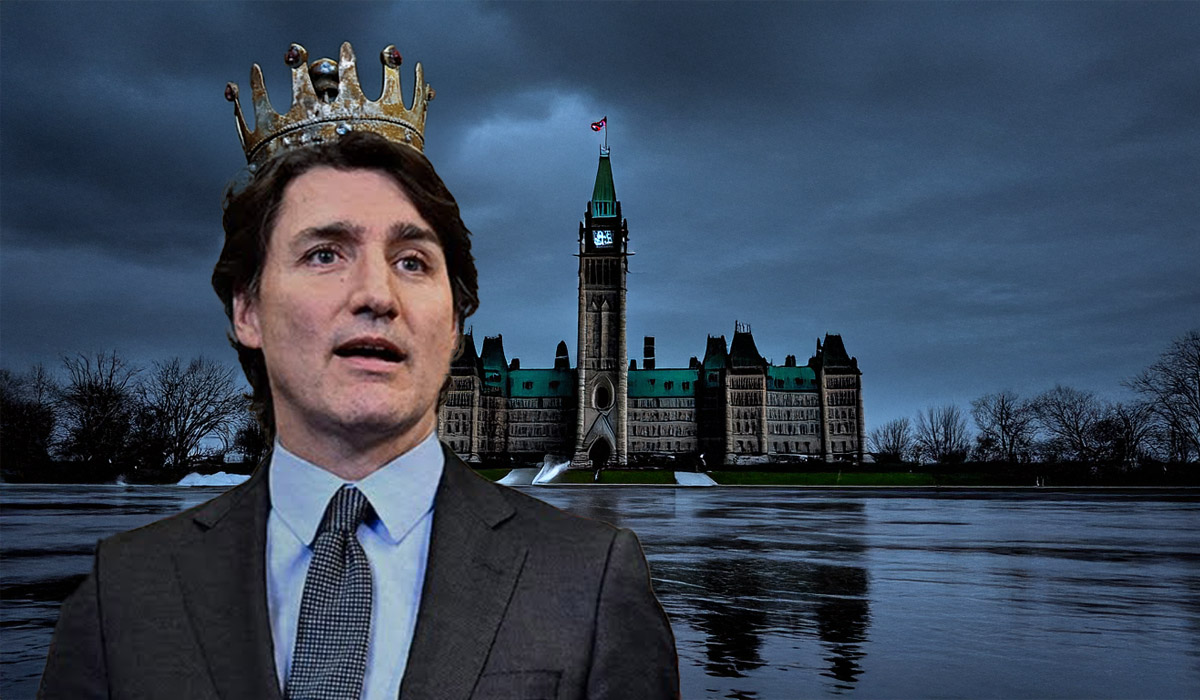
All the World’s a Political Stage: What Shakespeare Would Say to Our New Cabinet
William Shakespeare famously wrote in Macbeth, Act 1, Scene 4, a line uttered by Malcolm to his father King Duncan, referring to the recently departed Thane of Cawdor, that “Nothing in his life became him, like the leaving it”. The ill-fated Thane, in his final actions, died with dignity and a clear conscience. Macbeth, on the other hand, driven as he was by ambition, guilt and a thirst for power, neither sought nor attained political redemption.
I admit it is a bit of a stretch to equate this tale from Macbeth with the current ministry of the Trudeau government, but clearly, this group is facing a political execution of sorts if and when the next federal election is held. Commentary on social media and in the press is dominated by acrimonious calls aimed specifically at those ministers sworn in last Friday, of ‘how could they’, and charges that they were driven solely by ambition and the desire to attain the Honourable salutation for life. Perhaps. But let’s face it, they wouldn’t be in politics if they weren’t wired that way. Mr. Smith Goes to Washington was filmed 85 years ago, and I’m pretty sure it was not an accurate reflection of politics even then. In addition, some come to Cabinet with solid resumes. Ottawa South MP David McGuinty, for example, has earned respect and plaudits as chair of the National Security and Intelligence Committee. Canadians can be assured that Mr. McGuinty will hit the ground running, and that our national security apparatus is in serious hands.
The Government of Canada must continue to function, and until Prime Minister Trudeau vacates Rideau Cottage, he retains the authority to appoint ministers of the Crown. Whether he has the moral authority to do so is another question. I fall squarely in that ever-growing majority of Canadians who believe he should have taken his walk in the snow last week or, better yet, a year ago. But we are where we are.
So why quote Macbeth? Because the Trudeau Cabinet and particularly those newly minted ministers have a choice: they can fritter away the remaining weeks and possible months of this undead government by immersing themselves in the perks of office while draining resources from the Public Service of Canada – enjoying the ‘car and driver’ so to speak; or they can move the ball downfield in a two-minute drill to address, if only in small ways, the myriad crises Canada faces.
The exploding deficit, an increasingly crippling national debt, incoherent tax policy and a ludicrous fiscal policy that threatens to overwhelm the tough medicine applied by the Bank of Canada through their monetary policy. A report last week from National Defence highlighted, yet again, the woeful state of military preparedness. As we awaited Santa’s annual visit, we were reminded again that nefarious powers could roll over the North Pole before we got our long johns pulled on. A billion-dollar border protection package was unveiled last week. If it could be produced within a week of the grin (or grimace) and dine with Donald Trump at Mar-a-Lago, why wasn’t it already being implemented? Violence against Canada’s Jewish community has exploded in the past 14 months. Yet our hate speech laws and those that govern peaceful protests, such as masking and displays of terrorist symbology, go unenforced. And the list of unaddressed issues across the government goes, depressingly, on and on.
I offer the following suggestions for how ministers may conduct themselves and, equally importantly, direct their staff during the time they will serve as ministers.
1. Be clear with your staff that their lives will be hell for the next two months or potentially longer. I recall that David Dingwall, following the 1993 election, literally put his staff through a boot camp. In at 7 am, breakfast was a staff meeting and you stayed until 7 pm, often later. Saturday was a work day. In my own experience, working for Justice Minister Anne McLellan, we worked six weeks straight following 9-11, every day, hand-in-glove with the department, joined at the hip with Lawrence MacAulay at Public Safety, to get the omnibus Anti-Terrorist legislation before Parliament. Every clause was Charter-checked and compliant, while maintaining close contact with American authorities, in a whole of government full court press. The same urgency must be shown today. Political staff have always put in long hours; it’s about to get worse.
2. Don’t gum up the works. In other words, don’t waste the time of your officials. Absolutely resist the temptation to micro-manage day-to-activities of the department. Move files, sign correspondence, approve projects that obviously have been signed off by the appropriate authorities, and sign off on regulatory files. Such authorities are granted under the Financial Administration Act for a reason; ministers and their staff do not have the time to parse every decision, and in most cases, lack the expertise to do so anyway. Announce project approvals so that companies and individuals can get on with the work they’ve been funded to undertake. Credit is irrelevant at this time as Canadians, if anything, look askance at the firehose of money gushing from Ottawa. Don’t ignore what passes through your office, but focus on the big picture.
3. Ignore the Prime Minister’s Office (PMO). If the last week has illuminated anything to Canadians, it is the absolute incompetence that reigns within the walls of the building formerly known as Langevin Block. Do you really think their advice or directives on policy, communications strategy or issues management is worth listening to? Or that they have your personal or departmental interests at heart? Twenty percent support in the latest polls would suggest not. And if they pull rank, what are they going to do, fire you? You’ve been elected and have sworn the oath, not PMO staff. Pick the most important issues from your mandate letter or your predecessors, and run with them. Follow your own instincts, and your heart. A bonus for Canadians would be highlighting those policies that a Chrétien or Martin government would have implemented. They stand a better chance of surviving the coming Gotterdammerung, and may actually be on your department’s wish list.
4. Refuse foreign travel and resist the temptation to do regional tours of your department’s offices and operations. Do visit those departmental assets most mission-critical, i.e. major border crossings and transportation hubs, to fully understand their operations. I recognize this would ground ministers like Steven Guilbeault, but frankly at this point, a conference on any issue in Namibia or Peru or Scotland is not relevant to our main pressure points. In the present circumstances, three or four days to attend a gabfest is not worth your time. If the Prime Minister can fire Finance Minister Chrystia Freeland by Zoom, you are free to attend any foreign meetings via the same platform. Regional office tours simply to meet and greet are a waste of everyone’s time. It goes without saying — vacation on your own dime. The one exception is travel to the United States — Washington, Chicago, Boston, San Francisco. Ministers need to address the vacuum created by Justin Trudeau’s self-immolation, which is currently being filled by Doug Ford and Danielle Smith.
5. Recognize that your department and Privy Council Office have a responsibility to prepare for the next government; a task complicated by the almost certain reality that it will be a Conservative administration. Re-read #2 above, Don’t Gum Up the Works. Public servants, especially those in cabinet affairs branches, are working just as hard as you, if not more so. Ask for what you need, and for God’s sake, don’t send them off on wild goose chases. Do what you can to make their lives a little easier where appropriate, i.e. keep the paper moving, approve projects, etc. A hard rain is gonna fall. And you and your staff will appreciate the umbrellas a department can provide. Having experienced transitions from both the perspectives of political life and the public service, the transition is far more amiable and bearable if there has been a professional relationship.
Ascending to Cabinet has to be a tremendous honour and privilege. And I have some sympathy for those just joining the table under the current circumstances. The pinnacle of politics has been reached just as a cataclysmic storm is setting in. I suspect the general public mood is less charitable. But there are so many problems to be tackled and the runway is so short. Ministers could do worse than listen to the wise words of the Bard, as spoken by King Duncan — “Nothing in his life became him, like the leaving it” — and consider how they wish their portrait on the wall of ministers, to be viewed in the years to come.
Photo: Adobe AI










